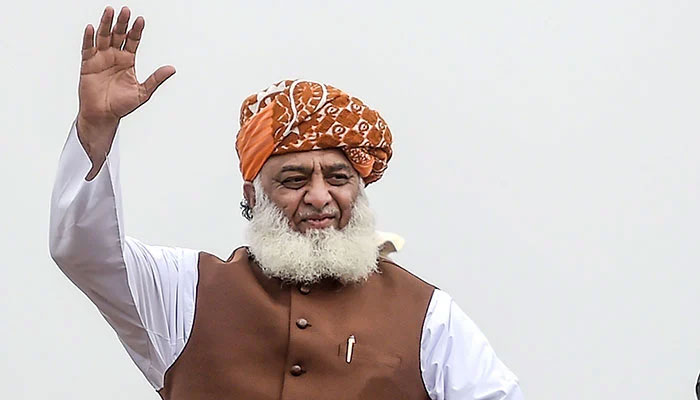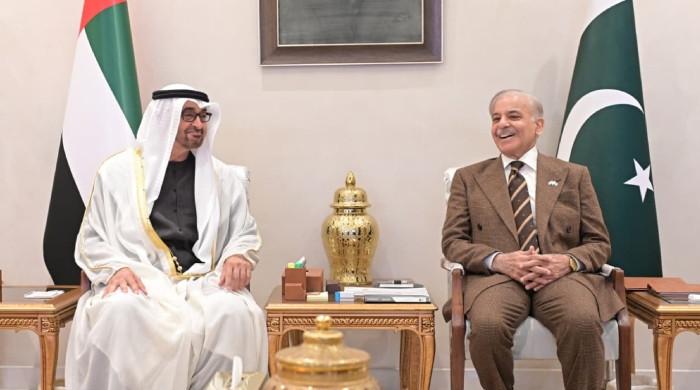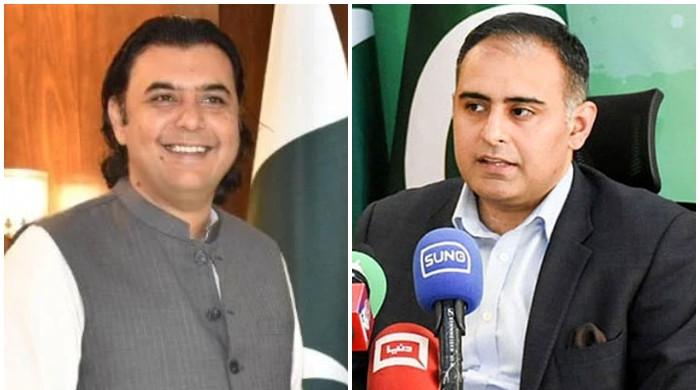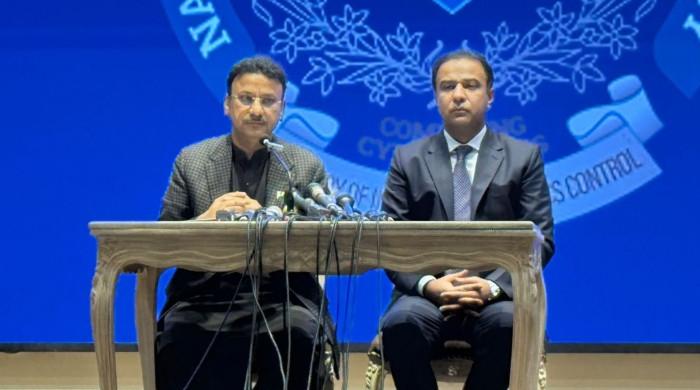Fazl wants Pakistan to recognise Taliban govt in Afghanistan
"If the world promotes relationship and trade with Taliban, they will also reciprocate," says Fazl
September 09, 2021

Jamiat Ulema-e-Islam Fazl (JUI-F) chief Maulana Fazlur Rehman has demanded the Pakistan government recognise the Taliban government in Afghanistan.
The Taliban formed their interim government on Wednesday after 20 years of their ouster by the allied forces led by the US. A couple of weeks after taking over the capital, the group has announced names of its interim government a few days ago.
"The Taliban entered Kabul as victors after fighting a 20-year long war," Fazl told Saleem Safi in the Geo News programme Jirga on Wednesday.
"The Taliban signalling to form a broad-based government and announcing general amnesty for all is a clear indication of their attitude [in the future]," said Fazl.
The JUI-F chief called upon the world to demonstrate an open heart towards the Taliban, saying that it is their turn to do so now.
"If the world promotes relationship and trade with the Taliban, they will also reciprocate by appreciating bilateral ties," Fazl stressed.
The Taliban will have to take recourse to the Constitution, law and public opinion, he said.
The Taliban interim government
The Taliban announced that they would introduce a broad-based and inclusive government in the country that would comprise various ethnicities.
However, the group handed all the top positions to key leaders from the movement and the Haqqani network.
Mullah Mohammad Hassan Akhund -- a senior minister during the Taliban's reign in the 1990s -- was appointed interim prime minister.
Mullah Yaqoob, the son of the Taliban founder and late supreme leader Mullah Omar, was named defence minister, while the position of the interior minister was given to Sirajuddin Haqqani, the leader of the feared Haqqani network.
The movement's co-founder Abdul Ghani Baradar, who oversaw the signing of the US withdrawal agreement in 2020, was appointed deputy prime minister.
At the same time, none of the government appointees was women.
"We will try to take people from other parts of the country," spokesman Zabihullah Mujahid had said, adding that it was an interim government.
But Bill Roggio, managing editor of the US-based Long War Journal, had tweeted: "The new Taliban, same as the old Taliban".
The world reacting to the Taliban government
After leading a virtual 20-nation ministerial meeting on the Afghan crisis, US Secretary of State Antony Blinken said any international legitimacy for the Taliban government would have to be "earned".
Blinken said the ministerial talks were the "starting point for international coordination" on how to deal with the Taliban.
Among the countries that participated in the virtual meeting were European allies and Pakistan.
"The Taliban seek international legitimacy. Any legitimacy -- any support -- will have to be earned," Blinken told reporters.
The European Union said the "caretaker" government failed to honour vows from the new rulers to include different groups.
China meanwhile said it welcomed the end of "three weeks of anarchy", adding it "attaches great importance" to the announcement of an interim government.
Foreign ministry spokesman Wang Wenbin said China hoped the Taliban would "pursue moderate and steady domestic and foreign policies, resolutely crack down on all kinds of terrorist forces, and get along well with all countries, especially neighbouring countries".
Qatar, the central intermediary between the Taliban and the international community in recent years, said the Taliban had demonstrated "pragmatism" of late.
"Let's seize the opportunities there," Assistant Foreign Minister Lolwah al-Khater told AFP in an exclusive interview, but she stopped short of announcing formal recognition of the government.
Former president Ashraf Ghani, who fled the country on August 15 as the Taliban entered Kabul, apologised Wednesday to the Afghan people for how his rule ended.
Ghani said he left at the urging of the palace security in order to avoid the risk of bloody street fighting, and again denied stealing millions from the treasury.
"I apologize to the Afghan people that I could not make it end differently," he said on Twitter.









